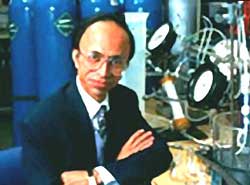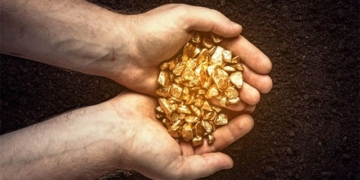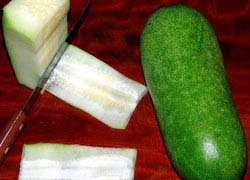A scientist at the New Jersey Institute of Technology (USA) is researching a new method for desalination of seawater using nano filtration membranes.
 Dr. Kamalesh Sirkar, a distinguished professor at the New Jersey Institute of Technology (NJIT) and an expert in membrane separation technology, is leading a research team to develop a new method for desalinating seawater.
Dr. Kamalesh Sirkar, a distinguished professor at the New Jersey Institute of Technology (NJIT) and an expert in membrane separation technology, is leading a research team to develop a new method for desalinating seawater.
Sirkar, who has received over 20 patents in the field of membrane separation, states that using his technology, engineers can extract water from seawater with high salt concentrations.
Sirkar believes that “Our process is particularly effective for seawater with salt concentrations over 5.5%. We are very excited about this new process because we can operate it using low-cost thermal energy. The energy costs are less expensive, yet it operates more efficiently.”
Currently, 5.5% is the highest salt concentration in seawater that can be treated using reverse osmosis methods.
Sirkar’s membrane distillation process is very simple.
Water is vaporized from the salt solution. The pure steam is then directed through nano tubes, filtered through a membrane to condense into droplets of water on the other side of the membrane.
The fundamental principles of membrane separation processes have been known for a long time. The intestines of humans and animals act as semi-permeable membranes. Previous experiments exploring membrane separation processes have been conducted by chemists using animal membrane samples.
Currently, membrane separation processes depend on the structure of the membrane and its constituent components.
The size of the nano tubes typically determines which molecular components in liquid or gas form will be filtered through the membrane.
Usually, typical molecules will move from areas of higher concentration to areas of lower concentration. The pressure and concentration differences across both sides of the membrane lead to the actual separation phenomenon. As the size of the tubes decreases, the efficiency and filtering capability of the membrane increase.
Membrane separation processes are utilized in biomedical applications, biotechnology, chemistry, food processing, petrochemicals, pharmaceuticals, and water treatment to separate, filter, concentrate liquid solutions or suspensions (liquids containing tiny solid particles) as well as gas mixtures.
Sirkar’s team conducts this process using ultra-thin membranes, measuring only in nanometers.
He has been working on membrane separation processes and biotechnology at NJIT since 1992.
He anticipates numerous applications for this process in the future. He stated, “Desalination of seawater stimulates economic development and the distillation of potable water always captures public attention.”



















































